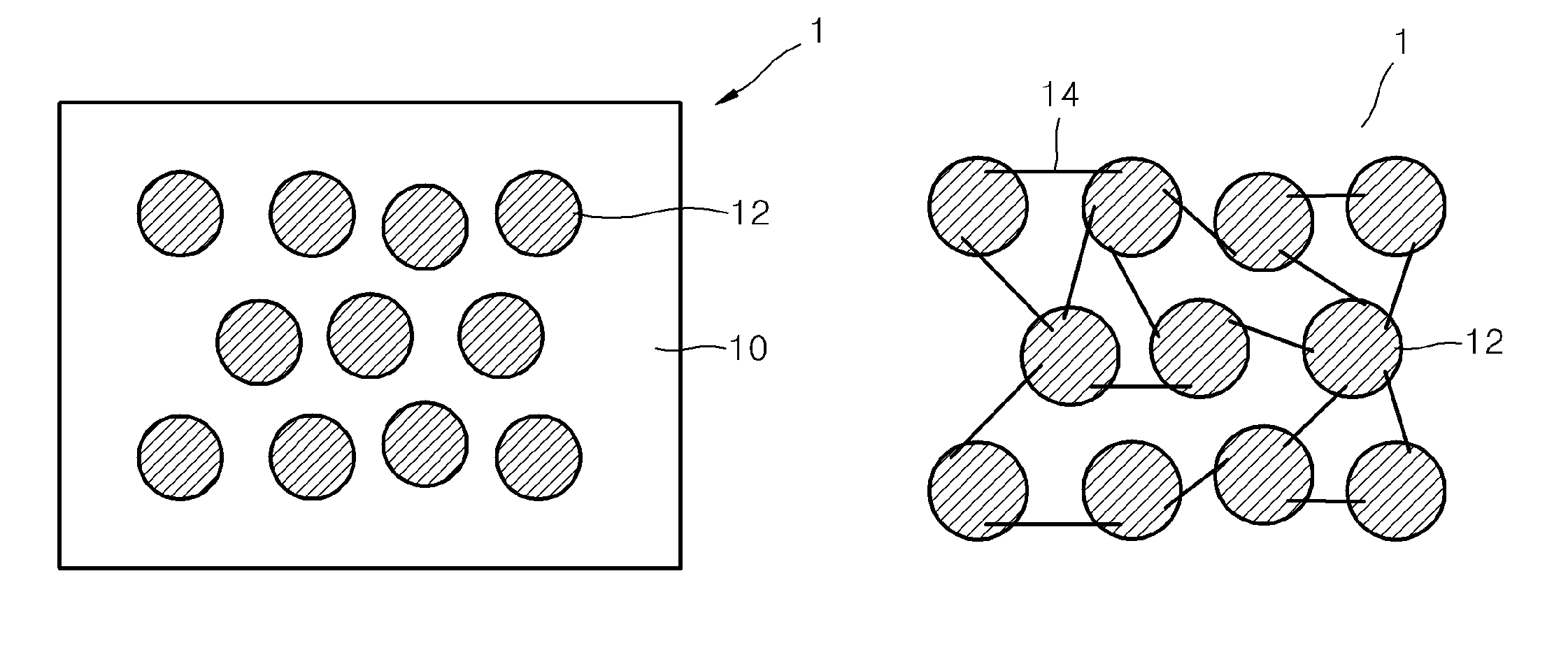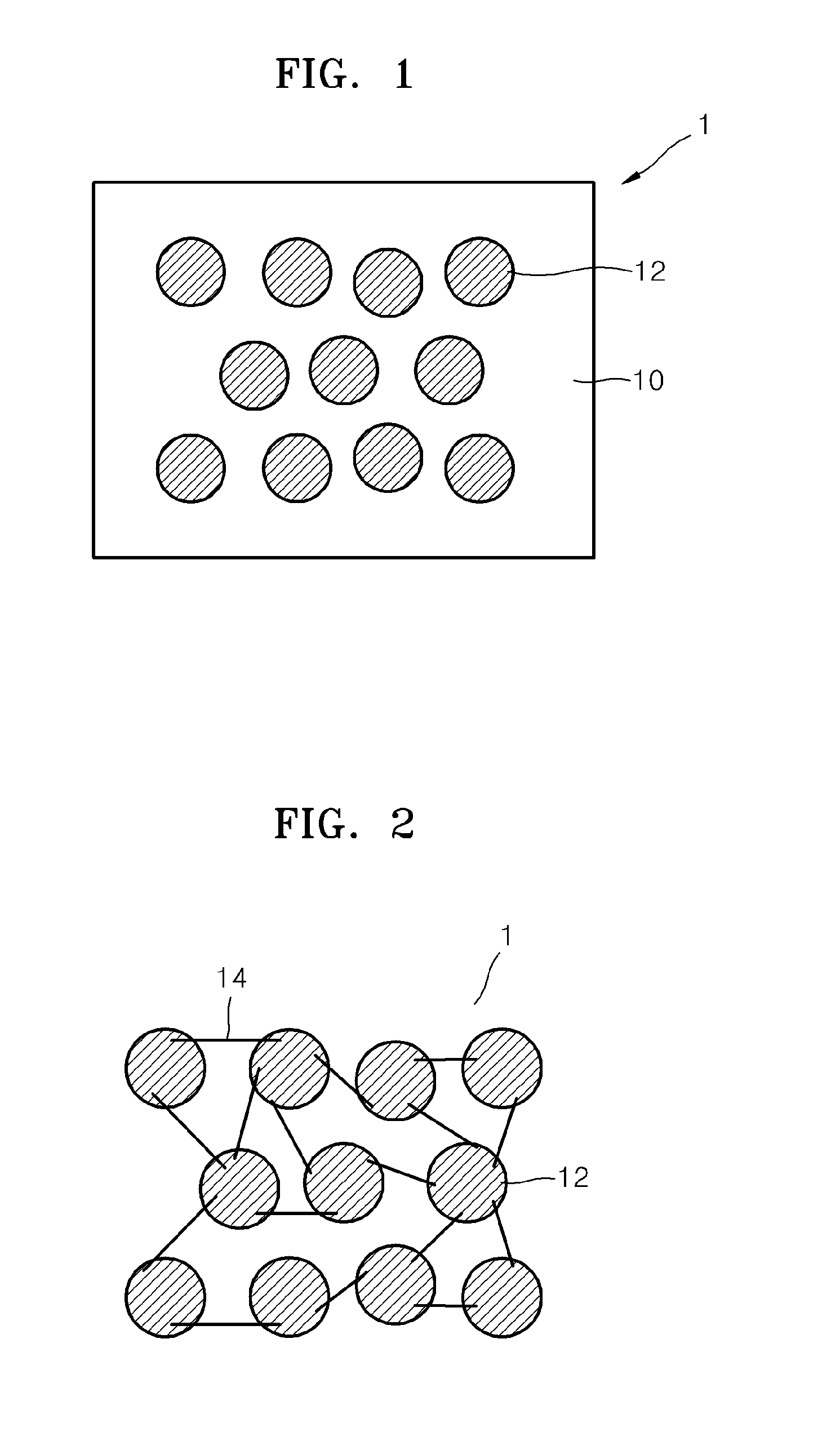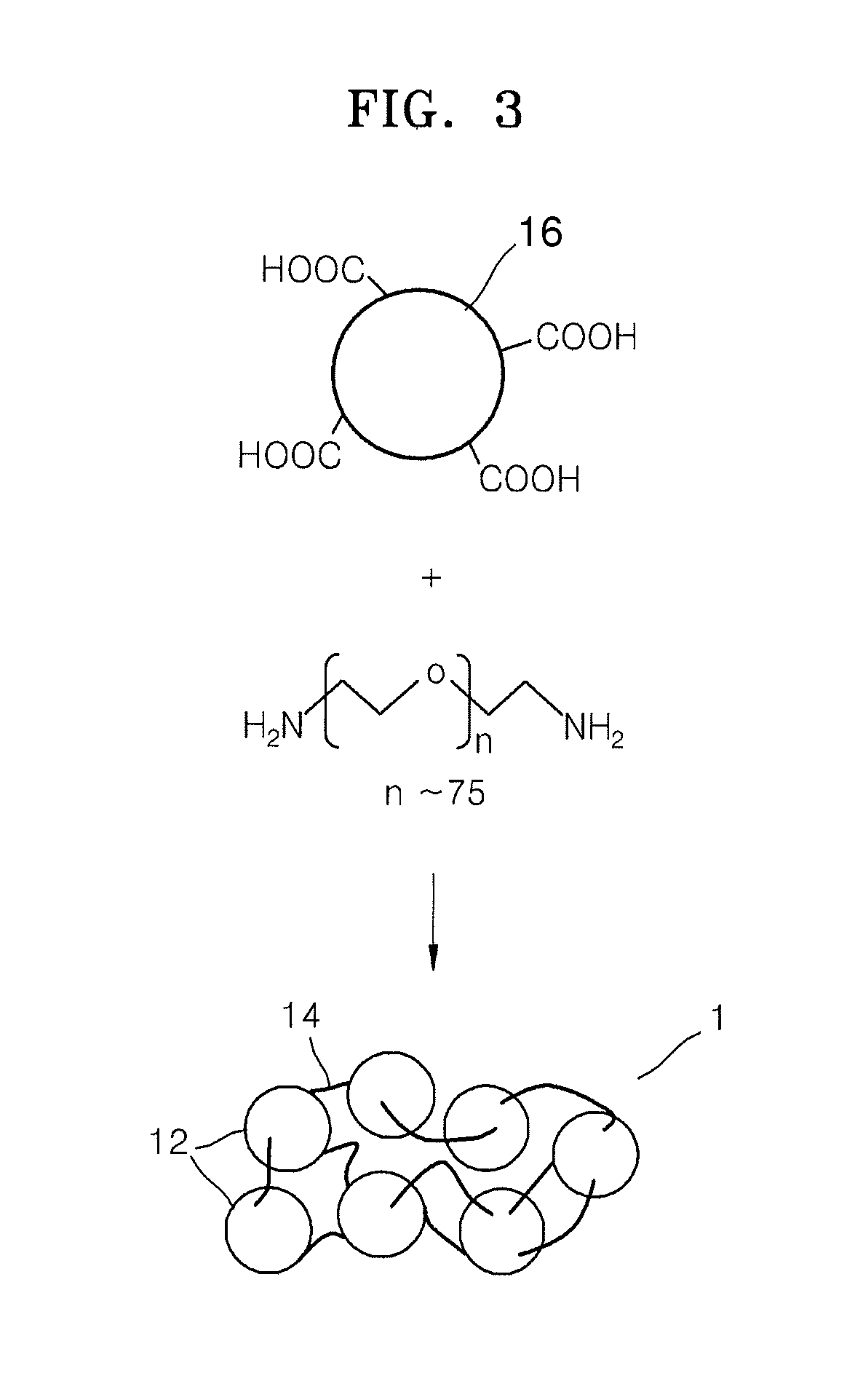Electrolyte membrane for lithium battery, lithium battery using the electrolyte membrane, and method of preparing the electrolyte membrane
a technology of electrolyte membrane and lithium battery, which is applied in the direction of non-aqueous electrolyte cells, sustainable manufacturing/processing, non-metal conductors, etc., can solve the problem of currently impractical use of polymer electrolyte in lithium ion batteries
- Summary
- Abstract
- Description
- Claims
- Application Information
AI Technical Summary
Benefits of technology
Problems solved by technology
Method used
Image
Examples
example 1
Preparation of Metal-Organic Framework (MOF-5, Zn4O(C8H4O4)3)
[0094]A 5.065 gram (g) (30.5 millimole (mmol)) quantity of terephthalic acid and 8.5 milliliters (mL) of triethyl amine were dissolved in 400 mL of dimethylformamide (“DMF”) to obtain an organic solution. A 16.99 g (77.4 mmol) quantity of Zn(OAc)2.2H2O was dissolved in 500 mL of DMF to obtain a Zn salt solution. The Zn salt solution was poured into the organic solution, followed by stirring for about 2.5 hours to obtain a precipitate. The resulting precipitate was washed and immersed in 250 mL of DMF overnight. After being washed a second time, the resulting precipitate was immersed in 350 mL of CH3Cl, wherein the solvent was exchanged three times for seven days. Then, the solvent remaining in the precipitate was removed by drying in vacuum at about 120° C. for about 6 hours, thereby preparing a metal-organic framework MOF-5, having the formula Zn4O(C8H4O4)3.
example 2
Preparation of Metal-Organic Framework (MIL-78, Y(C9H3O6))
[0095]A 0.347 g quantity of Y(NO3)3.4H2O (FW 346.98), 0.21 g of trimesic acid (FW 210.14), and 0.08 g of NaOH (FW 40) were put in 7.2 g of H2O (FW 18), after which the mixture was stirred overnight, and was then placed in a Teflon-coated pressure vessel for reaction at about 220° C. for 5 days. The resulting reaction product was washed and dried, thereby preparing a metal-organic framework MIL-78, having the formula Y(C9H3O6).
example 3
Preparation of Electrolyte Membrane (MOF-5 (Zn4O(C8H4O4)3)) for Lithium Battery
[0096]The metal-organic framework MOF-5 and polyethylene glycol diacrylate (Mn=700) were combined in a weight ratio of 1:1 and were mixed in chloroform in a weight ratio of MOF-5 to chloroform of 1:0.5. The resulting mixture was coated on a Teflon substrate using a 1 mm doctor blade. The coated compound was cured at a temperature of about 100° C. to about 120° C. overnight to form a film. The film was dried in vacuum at about 80° C. for about 12 hours. The dried film was immersed in a mixed solvent of ethylene carbonate and diethylcarbonate (in a volume ratio of 3:7) and a 1.3M LiPF6 solution overnight, withdrawn, and dried at room temperature in air overnight, thereby manufacturing an electrolyte membrane for a lithium battery. The electrolyte membrane had a thickness of about 500 μm.
PUM
| Property | Measurement | Unit |
|---|---|---|
| diameter | aaaaa | aaaaa |
| lithium ion conductivity | aaaaa | aaaaa |
| pore diameter | aaaaa | aaaaa |
Abstract
Description
Claims
Application Information
 Login to View More
Login to View More - R&D
- Intellectual Property
- Life Sciences
- Materials
- Tech Scout
- Unparalleled Data Quality
- Higher Quality Content
- 60% Fewer Hallucinations
Browse by: Latest US Patents, China's latest patents, Technical Efficacy Thesaurus, Application Domain, Technology Topic, Popular Technical Reports.
© 2025 PatSnap. All rights reserved.Legal|Privacy policy|Modern Slavery Act Transparency Statement|Sitemap|About US| Contact US: help@patsnap.com



